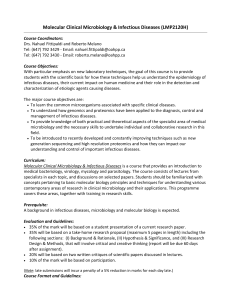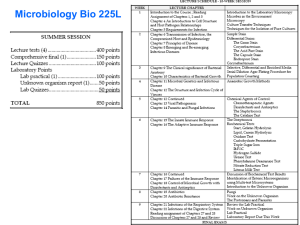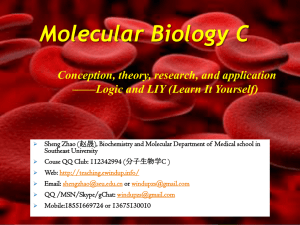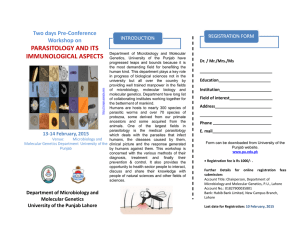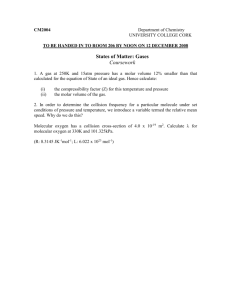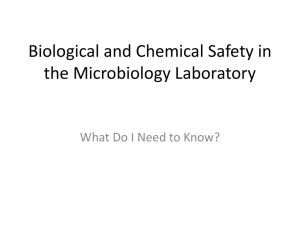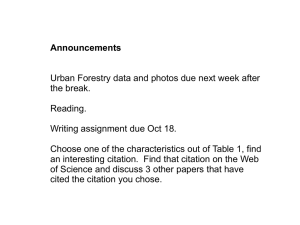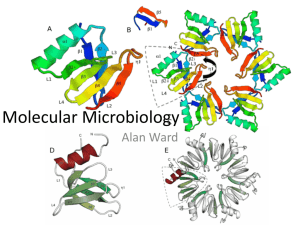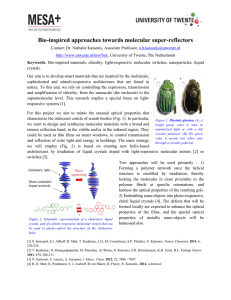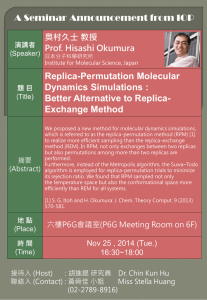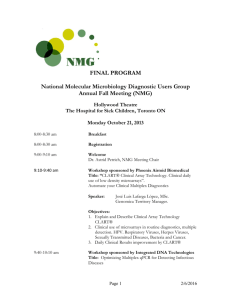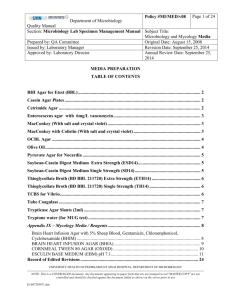Format of the Course
advertisement
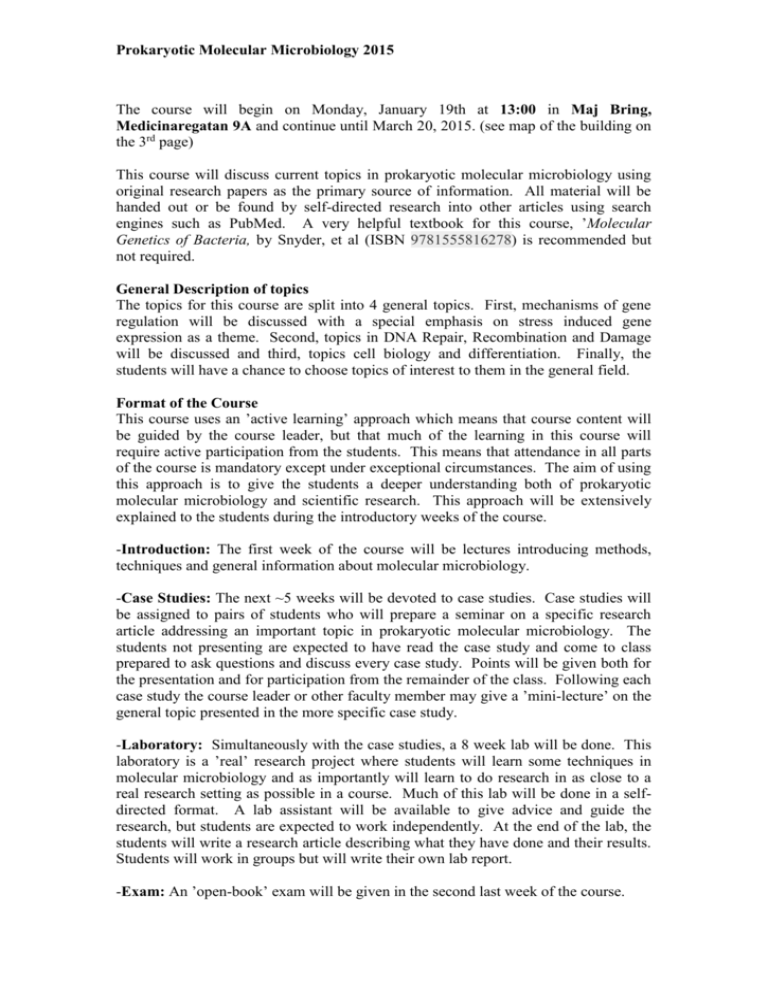
Prokaryotic Molecular Microbiology 2015 The course will begin on Monday, January 19th at 13:00 in Maj Bring, Medicinaregatan 9A and continue until March 20, 2015. (see map of the building on the 3rd page) This course will discuss current topics in prokaryotic molecular microbiology using original research papers as the primary source of information. All material will be handed out or be found by self-directed research into other articles using search engines such as PubMed. A very helpful textbook for this course, ’Molecular Genetics of Bacteria, by Snyder, et al (ISBN 9781555816278) is recommended but not required. General Description of topics The topics for this course are split into 4 general topics. First, mechanisms of gene regulation will be discussed with a special emphasis on stress induced gene expression as a theme. Second, topics in DNA Repair, Recombination and Damage will be discussed and third, topics cell biology and differentiation. Finally, the students will have a chance to choose topics of interest to them in the general field. Format of the Course This course uses an ’active learning’ approach which means that course content will be guided by the course leader, but that much of the learning in this course will require active participation from the students. This means that attendance in all parts of the course is mandatory except under exceptional circumstances. The aim of using this approach is to give the students a deeper understanding both of prokaryotic molecular microbiology and scientific research. This approach will be extensively explained to the students during the introductory weeks of the course. -Introduction: The first week of the course will be lectures introducing methods, techniques and general information about molecular microbiology. -Case Studies: The next ~5 weeks will be devoted to case studies. Case studies will be assigned to pairs of students who will prepare a seminar on a specific research article addressing an important topic in prokaryotic molecular microbiology. The students not presenting are expected to have read the case study and come to class prepared to ask questions and discuss every case study. Points will be given both for the presentation and for participation from the remainder of the class. Following each case study the course leader or other faculty member may give a ’mini-lecture’ on the general topic presented in the more specific case study. -Laboratory: Simultaneously with the case studies, a 8 week lab will be done. This laboratory is a ’real’ research project where students will learn some techniques in molecular microbiology and as importantly will learn to do research in as close to a real research setting as possible in a course. Much of this lab will be done in a selfdirected format. A lab assistant will be available to give advice and guide the research, but students are expected to work independently. At the end of the lab, the students will write a research article describing what they have done and their results. Students will work in groups but will write their own lab report. -Exam: An ’open-book’ exam will be given in the second last week of the course. Prokaryotic Molecular Microbiology 2015 -Poster Presentation: Several days before the end of the course, each student (working alone) will display a poster on a topic in prokaryotic molecular microbiology they have chosen themselves. These will be reviewed by all students and several faculty members. On the last day of the course we will have a poster session where the faculty members and students will discuss each of the posters for approximately 15 minutes. Grading Points will be accumulated throughout the course. 60 points are needed to pass (’G’) and 80 points are needed for ’VG’. The maximal points for each part are as follows: 20 p Case study 1 (16p presentation+4p participation) 20 p Case study 2 (16p presentation+4p participation) 20 p Lab Report 20 p Exam 20 p Poster (16p poster +4p participation) Schedule The final schedule is dependent on the number of students participating, but a preliminary schedule for the classroom activities is attached. Because the lab will be a ‘real’ research project, the schedule is very flexible depending on the results. Thus, we have scheduled 3 hours/day for lab for most of the days, but this is an approximation. Many days you will only have 1 hour in lab, but a few days might be 4 hours or even longer! Contact Information: Anne Farewell CMB-Microbiology, Lundberg Laboratory, 3rd floor. 786-2583 anne.farewell@cmb.gu.se Prokaryotic Molecular Microbiology 2015
